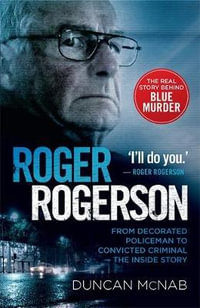"Building on their earlier book (Delivering Rehabilitation), Lol Burke and Steve Collett join with Fergus McNeill to propose a much more rounded conception of rehabilitation than the narrow correctionalism that has dominated political debate and much academic research. Rehabilitation and desistance must involve a great deal more than the interventions of criminal justice, but call on the responsibilities of the state and the community. The authors have written a book that combines academic rigour and a compelling political critique to show that "Ultimately, questions about punishment and rehabilitation are questions about the kinds of society we want to live in and to strive for."
Prof. Rob Canton, De Montfort University, UK
"Rehabilitation is buried, then resurrected, with the regularity of a zombie, but what the rehabilitative ideal needs is not another undead awakening but rather a complete reimagination. In this essential new vision, Burke, Collett and McNeill get us closer than ever before to a truly holistic concept of rehabilitation that transcends the individual-blaming of the risk model. We may be closer than ever to realising a vision of justice that is worthy of the name."
Prof. Shadd Maruna, author of Making Good: How Ex-Convicts Reform and Rebuild Their Lives.
"Despite a significant resurgence of interest in rehabilitation at the policy level in a number of jurisdictions, there have been surprisingly few attempts to outline a vision of what is needed to make this a reality for those caught up in offending and the criminal justice apparatus. This timely book delivers on that with a sophisticated and thoughtful analysis of what an effective rehabilitation strategy might look like. I recommend Reimagining Rehabilitation to students, practitioners, scholars and policy makers everywhere."
Gwen Robinson, Reader in Criminal Justice, University of Sheffield, UK"Going back to at least the birth of the penitentiary, scholars, policy-makers, and the public have debated the ideal form and functions of punishment. Rehabilitation has been lost, declared dead, and discovered anew. Burke, Collett, and McNeill's Reimagining Rehabilitation breathes new life into this enduring debate, providing an imaginative vision for twenty-first-century criminal justice. Rather than a narrow criminology oriented towards reducing risk and reoffending, the authors develop a model of personal, legal, moral, and social rehabilitation that can improve the lives of justice-involved individuals--and, in the process, redeem our democratic ideals."
Prof. Michelle S. Phelps, Assistant Professor, University of Minnesota, USA
























